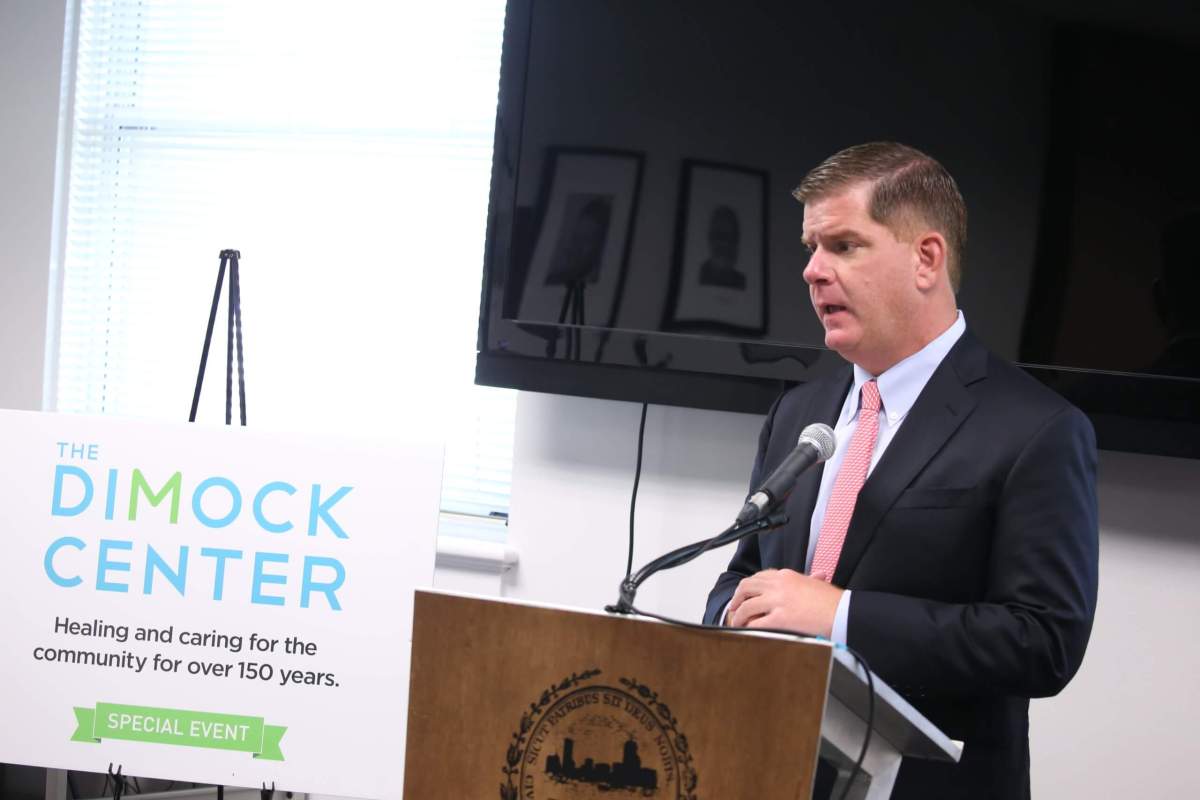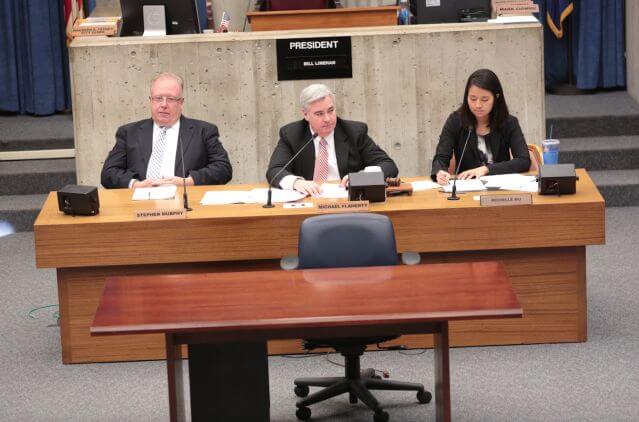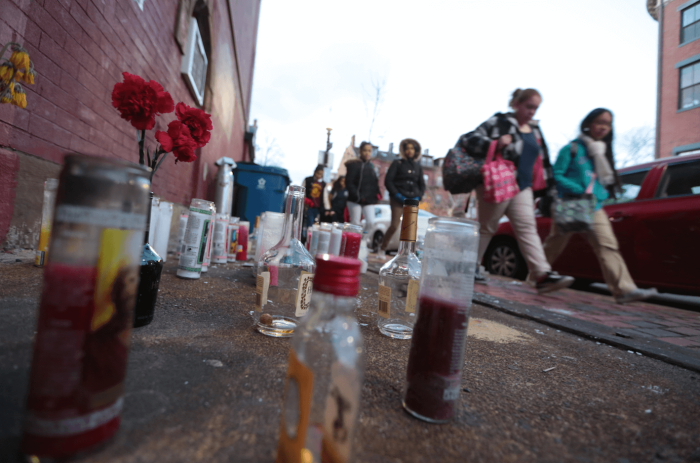Boston is trying to take a crack at the city’s growing smack problem.
Mayor Marty Walsh announced the blueprint for the Mayor’s Office of Recovery Services as Massachusetts and the rest of the nation face what the National Institute of Drug Abuse are calling an “opioid addiction epidemic.” Walsh’s office teamed up with Blue Cross Blue Shield in creating the nation’s first municipal-based office to focus strictly on addiction and substance abuse. “Eight months ago, there was a fear that we were going to have an Ebola outbreak,” Walsh said. “We were getting doctors and hospitals ready. But at the same time, mothers were burying their kids, spouses were burying spouses and we were losing people everyday because of a needle in an arm, or alcohol in a brown paper bag. We weren’t worried about that epidemic.” Boston’s rate of substance abuse is staggering, and there is no data available on the citywide capacity of substance treatment, according to Blue Cross Foundation President Audrey Shelto.
“That was a shock to me,” Shelto said. “The only reliable data on drug use available came from the National Survey on Drug Use and Health. The only data on capacity is from the Bureau of Substance Abuse Treatment from the State Department of Human Services.” The data provided by these surveys are only on a state-by-state basis, and don’t reflect the need for treatment on a city level. Last year, Mayor Walsh’s Office and Blue Cross found that outpatient and recovery service data were non-existent in Boston and began collecting quantitative and qualitative data. The results of these studies found that alcohol and heroin are the substances of choice, and that the extent of usage in Boston mirrors that of the rest of the state, with 11.3 percent of residents having substance abuse disorders. Ten percent of all Boston hospital emergency room visits are substance abuse related, as are five percent of inpatient admissions. The rate of heroin usage in the city skyrocketed, causing the rate of unintentional overdoses to increase by 76 percent between 2010 and 2012. Heroin calls to Boston EMS increased 25 percent between January to February 2013. On the other end of the spectrum, twenty five percent of Bostonians reported binge drinking and ten percent reported heavy drinking. On a state level, between 2000 and 2012, opioid-related deaths increased by 90 percent and have increased by 50 percent between 2012 and 2013. But treatment in Massachusetts is a statewide system, and the new Office of Recovery aims to address the citywide struggles. The average wait time for a bed at a detox shelter is 23 days and the amount of properly trained professionals who can medically monitor patients is far lower than the demand. Boston has 152 detox beds per 100,000 residents, the next largest in Central Mass. and Cape Cod can only offer 42 beds per 100,000 people. The State also has no centralized database for people to find openings in detox centers throughout the Commonwealth, and at any point, as many as half of the residential treatment facilities are occupied by non-residents of Boston. The Office of Recovery Services, which will operate under the Boston Public Health Commission, is part of the Fiscal Year 2015 budget and has identified $300,000 to support its creation. The hope is that this program will improve existing facilities, create a centralized information center for treatment availability and outpatient services, relapse reduction aid, and the expansion of public and private funding for local intensive care facilities. “I am passionate about helping the recovery community because I know what happens when somebody gets sober,” Walsh said. “There are too many people counting on us.”
Boston opens citywide substance abuse program in the face of opioid epidemic

Nic Czarnecki/Metro















